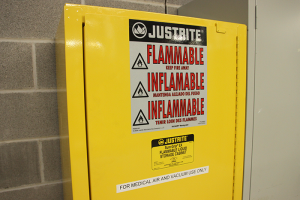ASHE uses data to push for NFPA code change
The National Fire Protection Association’s NFPA 25, Standard for the Inspection, Testing and Maintenance of Water-Based Fire Protection Systems, requirement that sprinkler piping is not in contact with items such as wires, conduits and duct insulation, among others, has long been a challenge for health care facilities.
The American Society for Health Care Engineering’s (ASHE’s) Regulatory Affairs Committee got involved in the issue and submitted a public comment on NFPA 25 to modify the code language in the 2023 edition. The data contained in the ASHE “Sprinkler System Support Analysis” monograph was submitted to support the code change. Data from facilities included in the analysis indicates that approximately 81% of the items touching sprinkler piping were cabling and flexible conduits, which pose a minimal hazard to the effectiveness of a sprinkler system.
The Regulatory Affairs Committee’s efforts were ultimately successful during a floor vote at the NFPA 2022 Technical Meeting. The 2023 edition of NFPA 25 no longer has language that restricts items from resting on the sprinkler pipe and states that sprinkler piping must not be used to support nonsprinkler system components.
The committee statement associated with the code change during the first draft stage reads, “Clarifying, that what is in contact with the pipe must be subjecting the pipe to weight to be an issue.”
The new code language, along with the committee statement, will hopefully be enough for regulators to relax the enforcement of nothing being permitted to touch sprinkler piping once the Centers for Medicare & Medicaid Services adopts the newest version of NFPA 101®, Life Safety Code®.
The health care field has diverted far too many resources away from patient care over the past 15 years to ensure that no items are in contact with sprinkler piping. This issue exemplifies the importance of adopting newer editions of the NFPA codes and is also a great example of using research and data to make informed code requirements.
Lennon Peake PE, SASHE, executive vice president, Koffel Compliance LLC.




